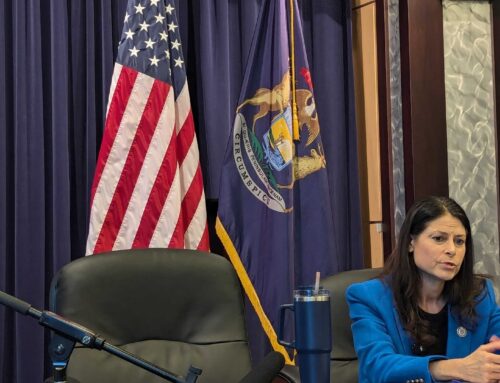Some say proposed clean energy rollbacks could send local businesses into “survival mode”
May 31, 2025
As lawmakers in the U.S. Senate face a July 4 deadline to pass a budget reconciliation package narrowly approved by the House of Representatives, renewable energy industry groups and businesses in Central Florida are bracing for painful “disruptions” they say would come from the bill’s proposed repeal of clean energy incentives. Many of those clean energy incentives enacted under the Biden administration funneled jobs and billions of dollars into Republican-controlled states, including Florida.
One provision in the bill’s current language would disqualify projects from using an existing commercial solar energy tax credit, unless project construction begins within 60 days of the bill’s enactment.
Such an abrupt shift would breed an unpredictable, “horribly harmful” environment for companies and people working on commercial solar projects, according to Ben Pauluhn, founder and president of Optimus Energy Solutions. The Mount Dora-based company specializes in electric vehicle infrastructure and commercial and residential solar energy projects.
“The employment disruption on that 60-day provision willbe massive, and it will notbe painless, and it will be nationwide,” Pauluhn said. “It would really put a dampener on a whole lot of momentum that America is currently on with energy independence.”
An earlier version of the bill that would’ve gradually phased out the commercial tax credit over a period of six years made much more financial and logistical sense, Pauluhn said. But as it currently stands, the bill would derail his growing company, throwing it into “survival mode, essentially overnight.”
“Any business can plan for a six-year phase-out,” Pauluhn said. “It’s an off-ramp. Agree or disagree with it; from a policy and a business standpoint, one can plan for that.
“If it is halted overnight, the employment disruptions … will be so disruptive that it will cause meaningful pain to people, communities and businesses that is probably not necessary,” Pauluhn said.
In Florida, more than 100,000 jobs are at stake if the proposed repeal of federal tax credits goes through, according to one third-party analysis commissioned by ConservAmerica, a conservative-leaning nonprofit. That report also estimates the average Florida household would pay about $83 more annually for energy costs.
RELATED: Orange County unveils new, massive floating solar array
There are more than 52,000 electric vehicles in Orange County alone, many of which were purchased using consumer credits that would be discontinued under the bill, according to Dory Larsen, Senior Electric Transportation Program Manager for the Southern Alliance for Clean Energy.
“When we look at repealing these programs, it represents broken promises to American consumers,” Larsen said. “And the result would be higher energy costs that we would all be forced to pay.”
Regardless of the barriers, solar energy is here to stay, Pauluhn said — but the question is, at what cost? He’s hoping to see lawmakers engage in “more thoughtful discussion” on the bill’s clean energy provisions, especially the 60-day construction requirement for commercial solar projects.
“Building, maintaining the infrastructure to deliver electricity is going to continue to be more expensive, irrespective of where the electricity comes from,” Pauluhn said. “So we darn well better keep the cost of electricity down. One of the best ways to do that is deploying solar [energy].”
Copyright 2025 Central Florida Public Media
Search
RECENT PRESS RELEASES
Related Post




